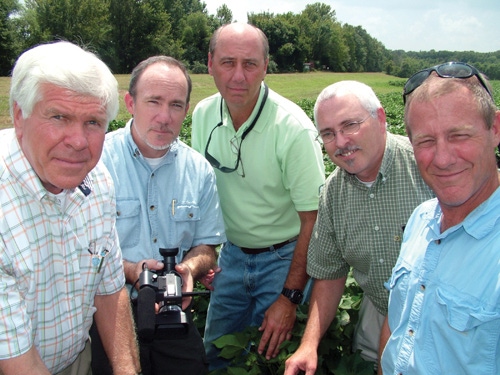
Agricenter International is adding a new wrinkle to the way it teaches city school children about agriculture. It’s bringing a cotton farm into the classroom, with the help of video streaming.
Agricenter, an urban research farm and education center in Memphis, Tenn., and Cotton Incorporated are teaming up on the pilot project, with the goal of exponentially increasing the number of children Agricenter can educate about cotton and other crops.
Agricenter educator Tim Roberts, who works for the University of Tennessee, says the project is so new that it officially doesn’t even have a name yet. It’s perfect for Agricenter, whose goal is to be an outdoor classroom for Memphis and the Mid-South. Its mission is to provide education and awareness in agriculture, forestry and natural resources to the general public. Its educational services are free to the general public.
Agricenter, which produces cotton, corn and soybeans and various research crops, will continue its tradition of busing between 5,000 and 6,000 Memphis area students to the farm each year, according to Roberts. But the video streaming project has the potential to teach many more. In fact, it’s limited only by the reach of the Internet.
Cotton Incorporated is providing services and equipment, including two video cameras and a ruggedized laptop, while Agricenter is providing data, content and staff time. The company providing the video streaming is I-Link Live.
Here’s how the project would work.
Participants in the video streaming would log on to a web site and register for the event. In the classroom, Roberts will talk about cotton and hand out various parts of the cotton plant for students to handle during the narrative.
Back in a cotton field at Agricenter, Bryan Marinez, information technology manager at Agricenter, will oversee the operation of two Sony high definition cameras, along with a General Dynamics 6000 ruggedized laptop with a cellular air card for accessing the Internet.
Children can touch parts of the cotton plant brought to the classroom to reinforce what Marinez captures on video.
During a recent test run at Westminster Academy in Shelby County, teachers were very impressed with the technology, said Roberts. “The image from the field was very sharp on the screen and speakers picked up the sounds from the field.”
One challenge of the project is to weave the story of cotton into the classroom curriculum. “We’re going to have to tailor some of the things we teach into what teachers want,” said John Charles Wilson, Agricenter president. “These are not ag schools.”
The idea is use cotton to teach children elements of biology, history, or current events, according to Wilson. “We can talk about the seed first, and then get into the science of what happens to the seed in the soil. Then we go to the growth patterns of the plant, the differences between the cotyledons and a true leaf, a feeder root and a tap root.
“We can ease into no-till and why farmers are changing the way they do things. There’s so much that can fit our needs and fit the teachers’ needs, too. They’re teaching a lot about being green these days.”
Wilson is more than qualified to teach “green.” Prior to his role at Agricenter, Wilson produced cotton in Arlington, Tenn. While farming, he spearheaded the 4-county Beaver Creek Project, which enlisted the aid of several federal agencies to study the impacts of farming on water quality.
The history of cotton can be tied into American history, too, including its role as an industrial engine of the South. This could segue into how cotton is produced today, according to Roberts. “We would like to use digital video technology to demonstrate the progression of cotton production from dirt to shirt. The children would watch the seed go into the soil, grow, be picked, moduled, taken to the gin and delivered to a textile mill.”
In time, the video streaming concept could expand far beyond the west Tennessee area, basically into any classroom with access to the Internet. “This potential market reach is a big reason why Cotton Incorporated became involved in the project,” said Janet Reed, associated director, environmental research, Cotton Incorporated.
A secondary benefit of video streaming will be to create opportunities for companies who contract agricultural research at Agricenter, including those who participate in the facility’s AgTechnology Field Day, held every other year. According to Agricenter research director Bruce Kirksey, companies can host web events and video streaming of field days and other events of interest to producers and companies.
“If there’s something going on that’s pertinent to the agricultural community, we can share it immediately,” Marinez added. “If there is something a company wants to communicate, we can make it happen. This technology is untethered. We can walk out into the middle of a field, go right up to a cotton plant, and go live with a presentation. The information can also be stored, so we can create a knowledge base for the agricultural industry.”
Pilot education projects are underway at Kate Bond, a Memphis city school, Westminster Academy, a Shelby County school, and several private schools, according to Marinez. The video streaming project should be well under way by this fall.
About the Author(s)
You May Also Like






